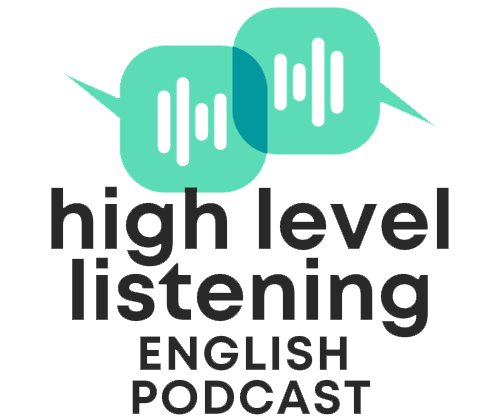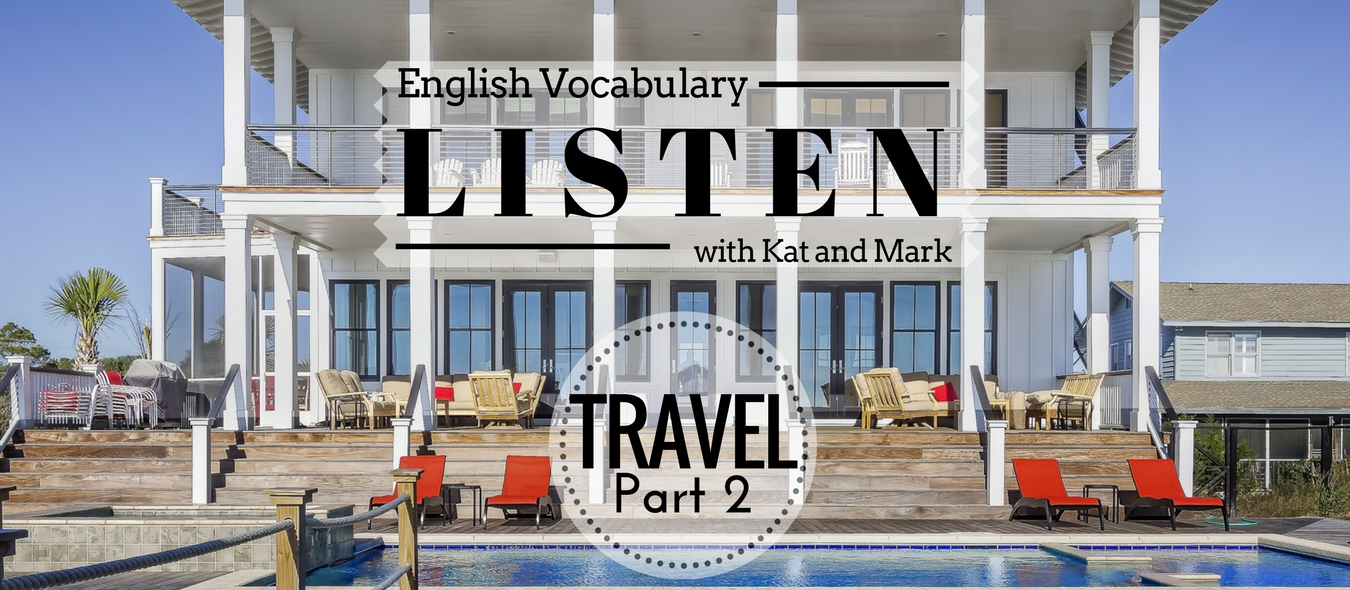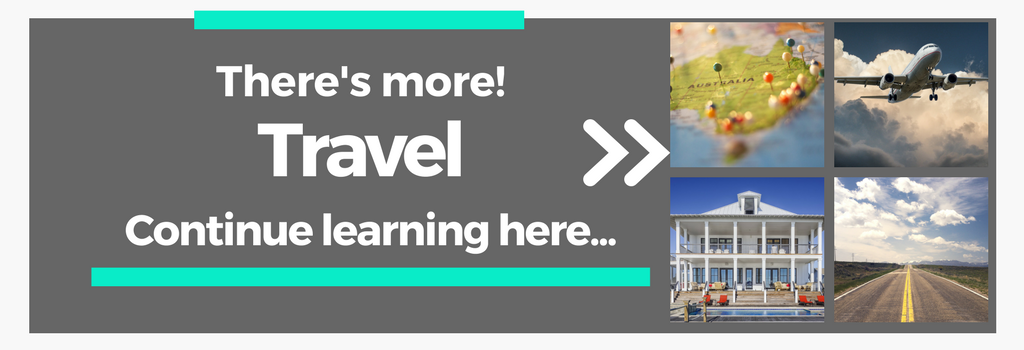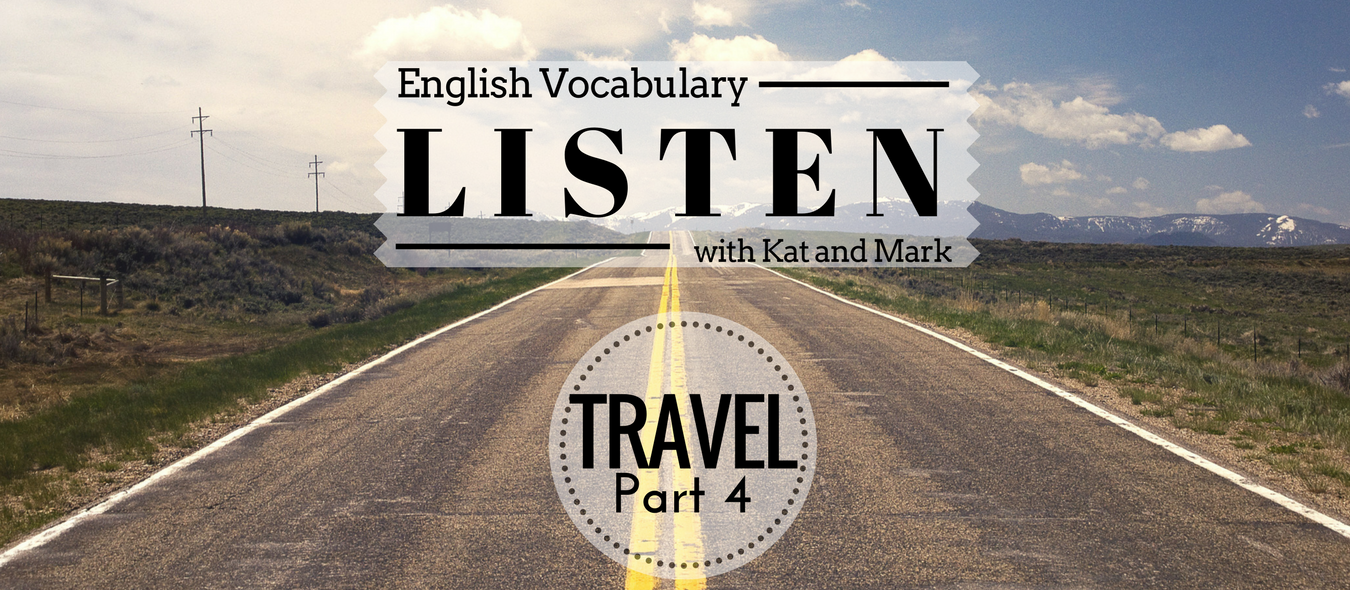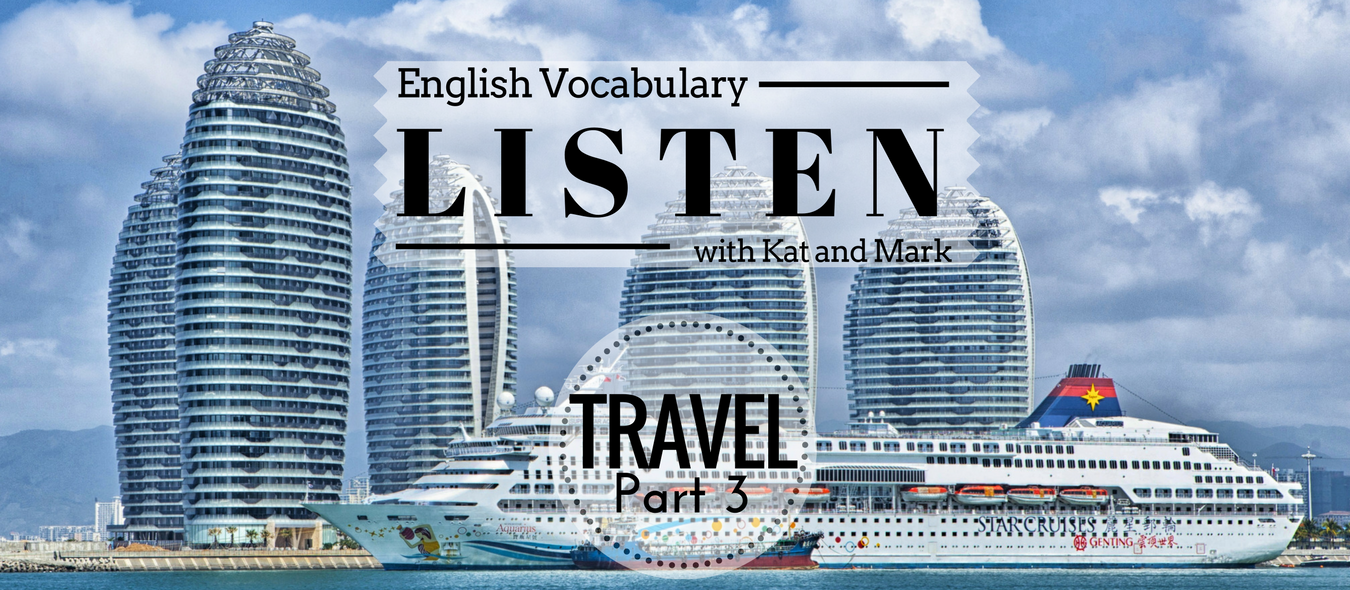[wonderplugin_audio id=”44″]
Welcome to our Daily English Listening Practice with this week’s series:
Travel Vocabulary
What’s your budget for this trip? Are you the kind of person who budgets every penny or do you just go crazy, because, hey, it’s your vacation! Enjoy using this new advanced ESL listening practice and feel confident using this new travel vocabulary right away!
Please listen to the audio files for explanations.
Transcripts unavailable.
Notes from the Audio Files
How to Budget
- Rough estimate: a general idea of how much it will cost
- Big expenses: areas you’ll spend the most money
- Gonna be up there: high on the list
- Daily expenses: money you spend per day
- Take up the bulk of it: the most part
- Split it: divide the cost with another person
- Solo: alone
- Eating up the cost: Taking up most of the price / total
- Weekly budget: A spending amount for every week
- Over budget: Spending more than my budget allows
- Bankrupting myself: Spending all my money
How to use it:
“Budgeting always gets me excited about the trip! I search for flights, hostels and the average daily cost of other backpackers, then I always set aside some money for emergencies.”
“If I don’t set a budget before I go on a trip, I end up going wild and just splurging on everything. It’s for my own good!”
Budget Airlines
- Low-cost carriers: another name for budget airlines
- Charge extra: make you pay more money
- A tiny carry-on: a small bag or purse you take on the plane
- Nickel and dime you: make you pay for any extras, no matter how small
How to use it:
“I love using budget airlines for short trips, but if I need to travel with luggage or a checked bag, I need to be prepared to pay extra for that.”
“You get what you pay for with budget airlines. If it’s anything more than 3 or 4 hours I’ll probably pay for a better airline.”
Budget Accommodation
- Hostels: Small, cheap guest house
- Dorm room: A big room filled with beds (usually 6 or 8+)
- Foreign passport: Passport from a different country
- Motel: lodging near freeways, common in the US
- Exits: areas when you can leave the freeway, often with a lot of chain restaurants and motels
- Run-down: Old, not very clean, needs renovation.
- Reams of information: Long lists of information
How to use it:
“I loved getting a dorm bed in a hostel when I was traveling with my friends in college. It’s a great way to meet new people and find other cool travelers to hang out with.”
“Budget accommodation is everywhere in the Philippines, you can arrive in any town or city and find somewhere to sleep for a few hundred Pesos.”
Mid-range
- Step up: better than the option below
- Airbnb: online accommodation
- Guesthouses: small, sometimes family-run lodging
- Whole apartments: private apartments only you can use
- Look down on: think something is lesser or worse than it is
- It is what it is: You shouldn’t expect more
- No frills: No extra, basic
- Bells and whistles: No extras or special things
- Basic commodities: (Mark meant “Amenities” but he got confused.Sorry!”) Amenities are basic pieces of furniture and appliances
How to use it:
“Now that I usually travel with my partner, we don’t mind paying a little extra to stay in a private apartment on Airbnb rather than two dorm beds in a hostel. It also beats a tiny basic hotel room.”
“Even mid-range hotels in Eastern Europe are very affordable. And they come with a TV, a little kitchen, microwave and even a bathtub!”
Boutique/ Upscale/Luxurious/ High Level of Service
- Luxurious/Upscale: High quality and high level of service, usually very expensive
- Famous landmarks: Popular places of interest or attractions (Eiffel Tower, Big Ben, etc.)
- Room service: A hotel service that brings food or drinks to your hotel room
- Ordered to your room: Brought or delivered to your hotel room
- Reflection of how much you paid: It represents how much you paid i.e. high price = high quality
- Concierge on call: a person who is available at any time to explain the city and give recommendations
- Casino: a place to gamble
- Fine dining: expensive, classy dining
- Boutique: non-branded high-end hotels, often small
- Just as high quality: the same high quality as the other hotels
How to use it:
“My friend got married in this gorgeous, upscale resort on Maui, we had a spa day, relaxed by the pool, had room service brought up and had an amazing time.”
“The boutique hotels are really lavish – swimming pools, spas, restaurants, gyms – they have everything!”
What kind of budget are you on when you travel? Are there any other types of vacations that you like to take? Let us know if you have anymore questions!
Thanks,
Kat and Mark
